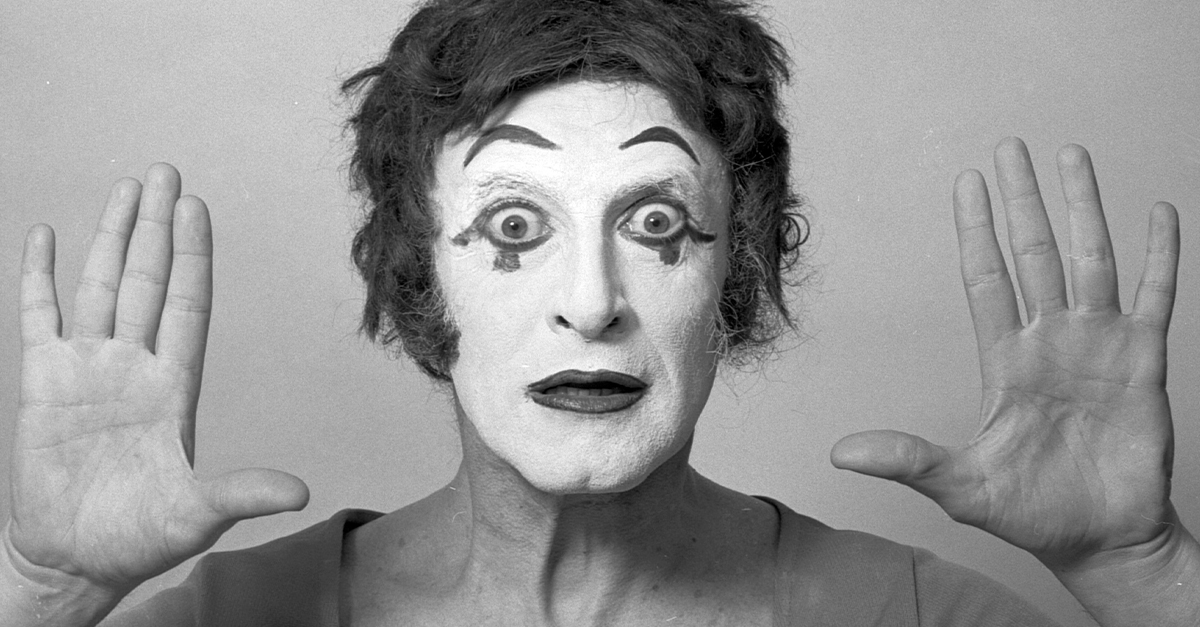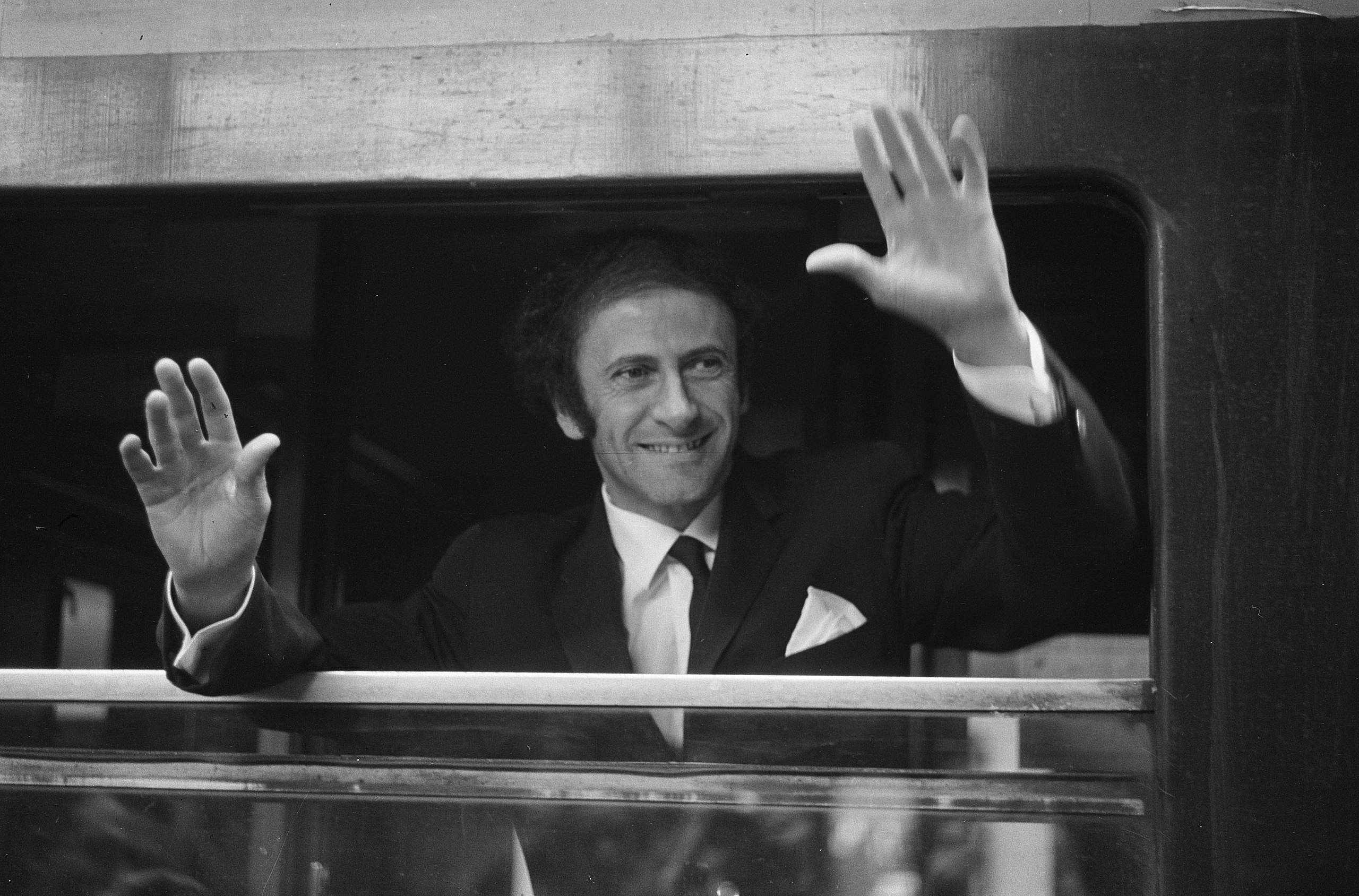The Famous Mime With A Dark Backstory
Though many might recognize Marcel Marceau, the famous French mime artist—few know his harrowing and heroic backstory.
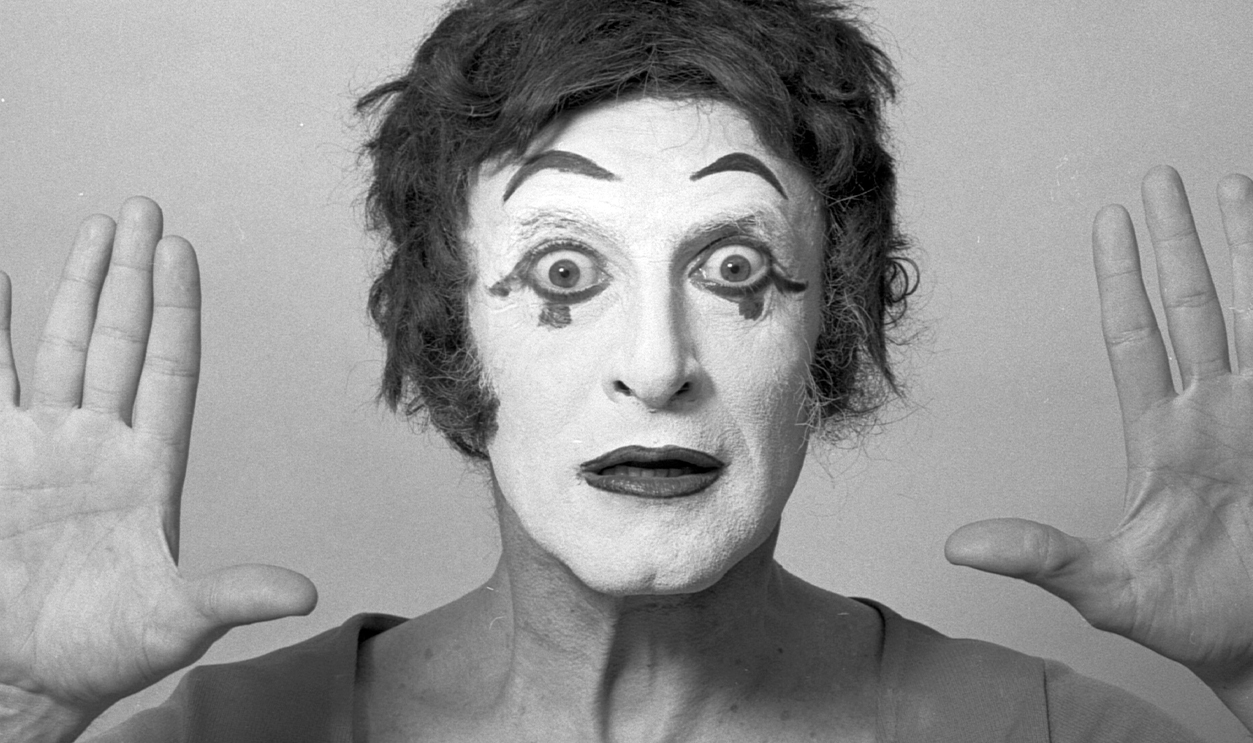
He Changed His Name
Born in Strasbourg, France in 1923, Marcel Marceau came from a Jewish background. His original name was Marcel Mangel, but when Germany invaded France at the beginning of WWII, he changed his last name to "Marceau" so that he could pass as non-Jewish.
 Unknown Author, Wikimedia Commons
Unknown Author, Wikimedia Commons
His Family Fled For Safety
By changing his surname, 17-year-old Marceau and his terrified family were able to flee to Limoges. Quite fittingly, Marceau and his brother had gotten the idea for "Marceau" from the name of a French Revolution general: François Séverin Marceau-Desgraviers.
But despite their escape, only danger lay ahead.
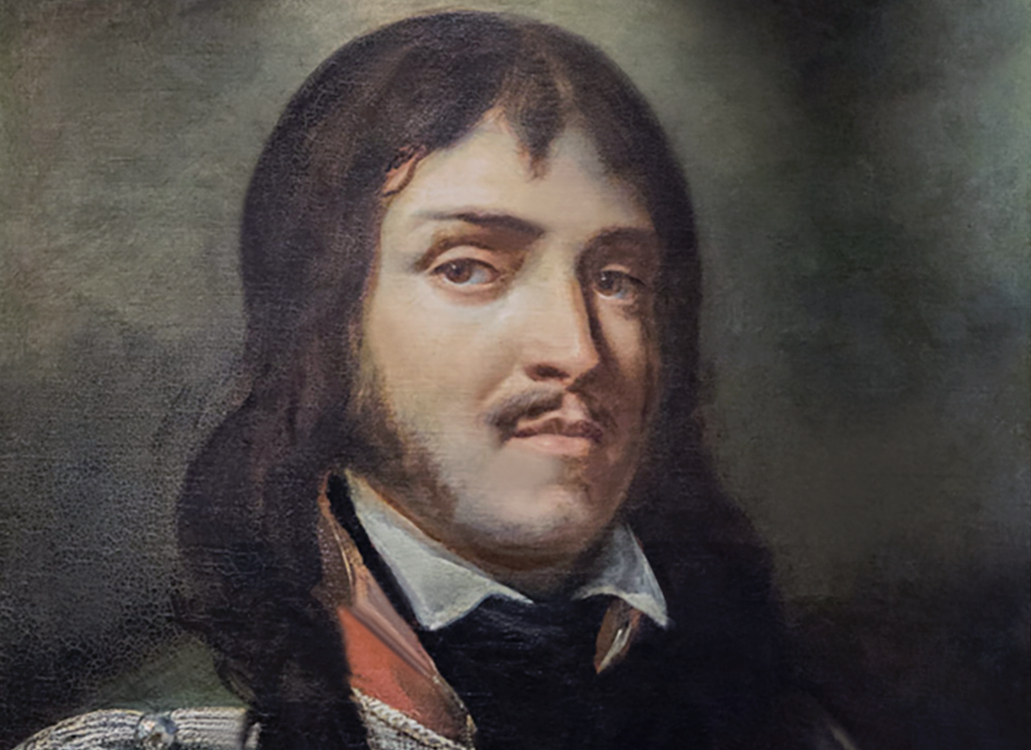 François Bouchot, Wikimedia Commons
François Bouchot, Wikimedia Commons
He Made A Difference
WWII was a horrifying time for the Jewish population, but Marceau was destined to make a difference. When his cousin, Georges Loinger, came to him with a scary opportunity, he accepted.
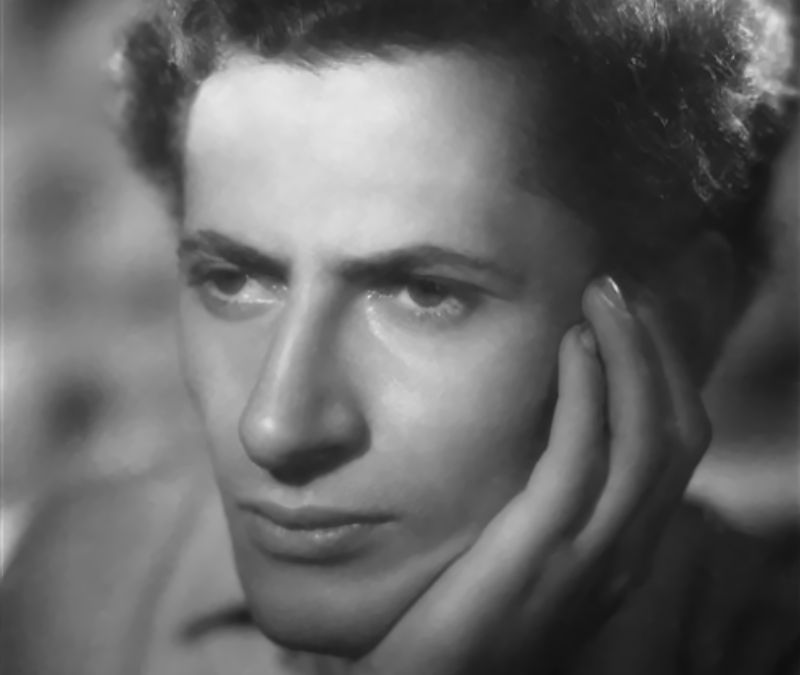 Studio Harcourt, Wikimedia Commons
Studio Harcourt, Wikimedia Commons
He Joined The Resistance
Georges Loinger was part of a Jewish relief group known as the Oeuvre de Secours aux Enfants (OCE). He commanded a secret unit—and eventually recruited Marceau to the cause.
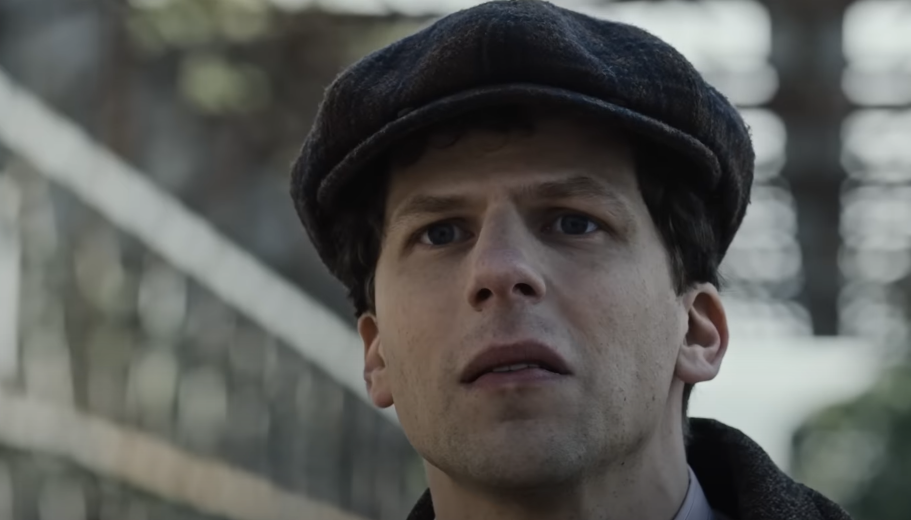 Pantaleon Films, Resistance (2020)
Pantaleon Films, Resistance (2020)
He Had To Save Jewish Children
Marceau had joined the French Jewish Resistance in France—and this came with an overwhelming responsibility. His mission? To rescue Jewish children from the Holocaust and transport them to safety.
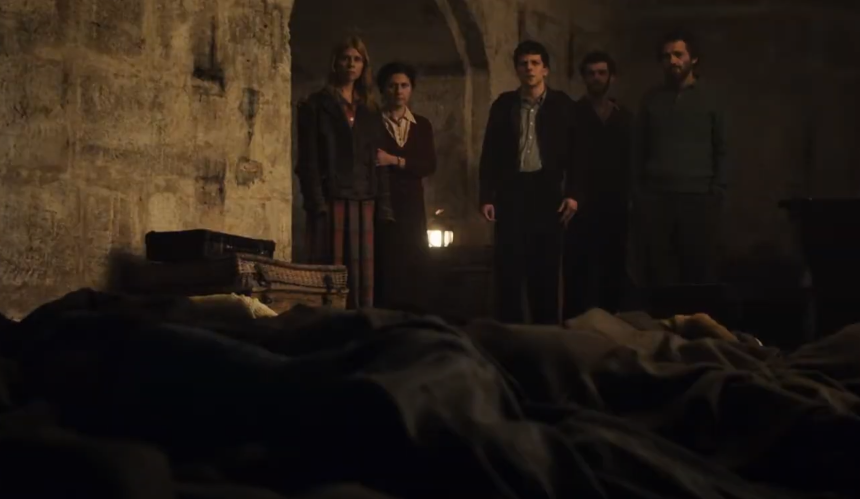 Pantaleon Films, Resistance (2020)
Pantaleon Films, Resistance (2020)
He Was The Right Man
A French orphanage had been hiding Jewish children, and Marceau would be responsible for helping them escape to the Swiss border. It was a daunting task—but Marceau turned out to be the perfect man for the job.
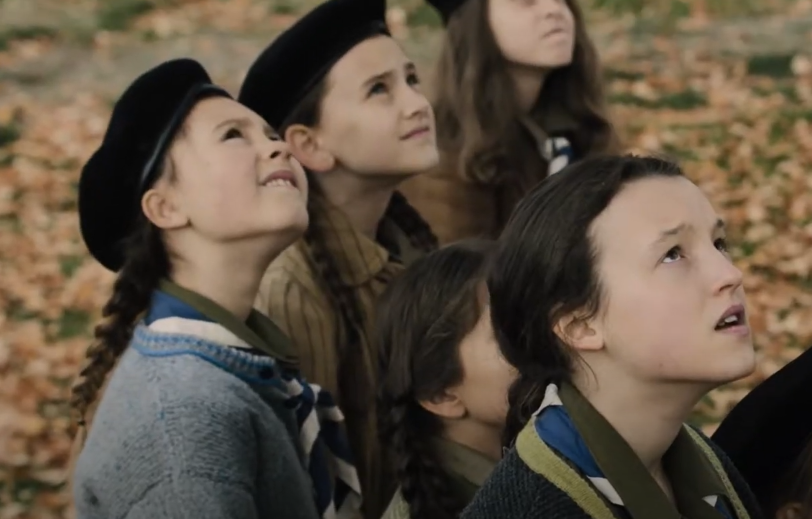 Pantaleon Films, Resistance (2020)
Pantaleon Films, Resistance (2020)
He Used His Acting Talents
Going on a risky journey with a large number of children could have been disastrous, but Marceau brought one of his singular talents to the table. He knew how to mime.
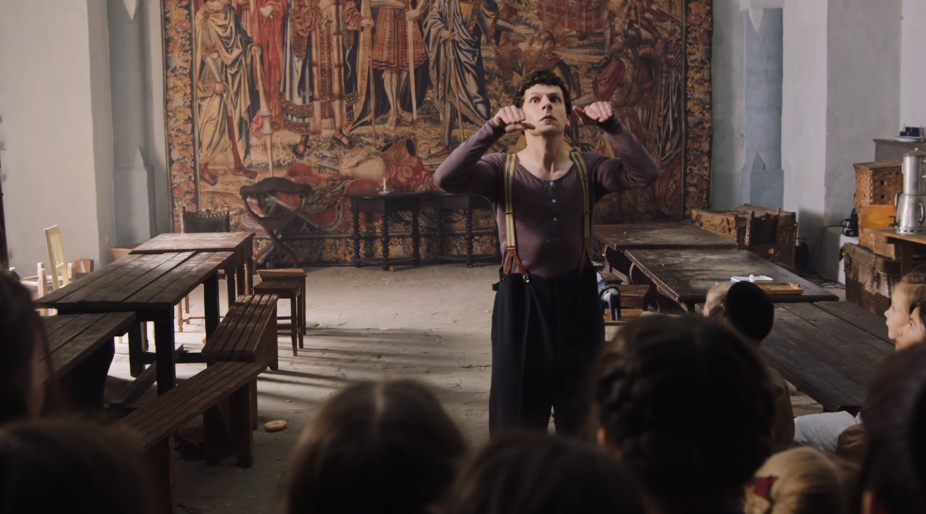 Pantaleon Films, Resistance (2020)
Pantaleon Films, Resistance (2020)
He Put Them At Ease
Marceau's cousin Loinger later shared, “The kids loved Marcel and felt safe with him. He had already begun doing performances in the orphanage, where he had met a mime instructor earlier on. The kids had to appear like they were simply going on vacation to a home near the Swiss border, and Marcel really put them at ease.”
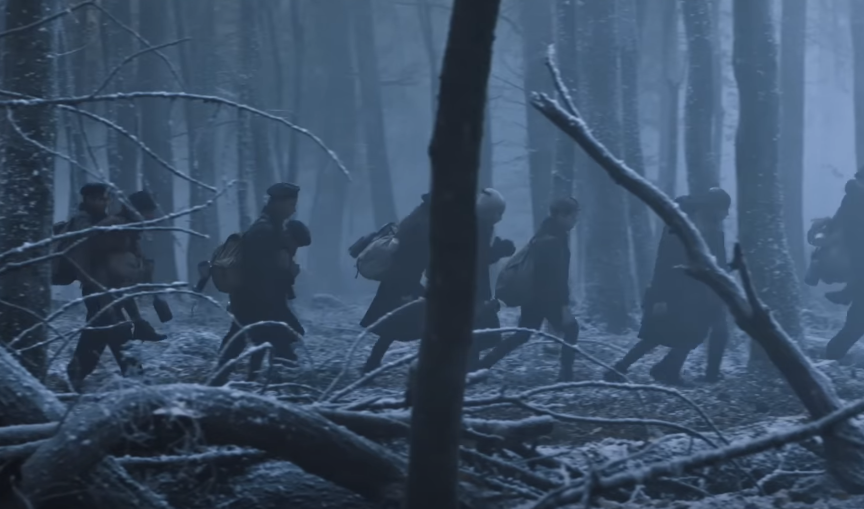 Pantaleon Films, Resistance (2020)
Pantaleon Films, Resistance (2020)

History's most fascinating stories and darkest secrets, delivered to your inbox daily.
He Kept Them Quiet
Marceau's acting and miming talents certainly reassured the children, but it was so much more than that. He also used miming to keep the children silent.
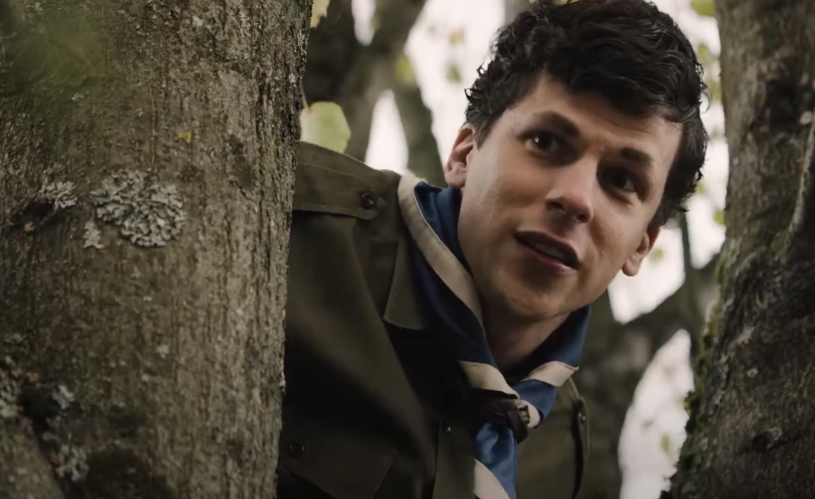 Pantaleon Films, Resistance (2020)
Pantaleon Films, Resistance (2020)
He Mimed For His Life
The son of one of Marceau's associates later spoke about Marceau's strategies, saying, “It had nothing to do with show business. He was miming for his life.” But that wasn't all.
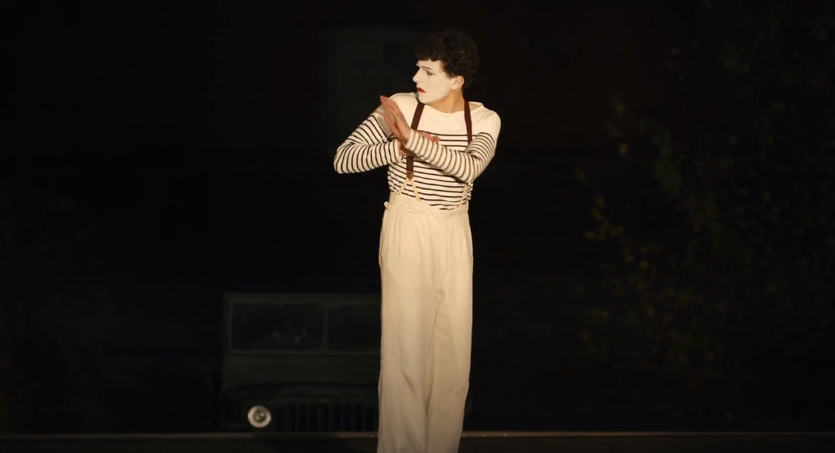 Pantaleon Films, Resistance (2020)
Pantaleon Films, Resistance (2020)
He Donned A Clever Disguise
Marceau cleverly disguised himself as a Boy Scout leader as he guided a group of 24 children, who were also wearing Boy Scout uniforms. He led them through the forests in order to reach Switzerland.
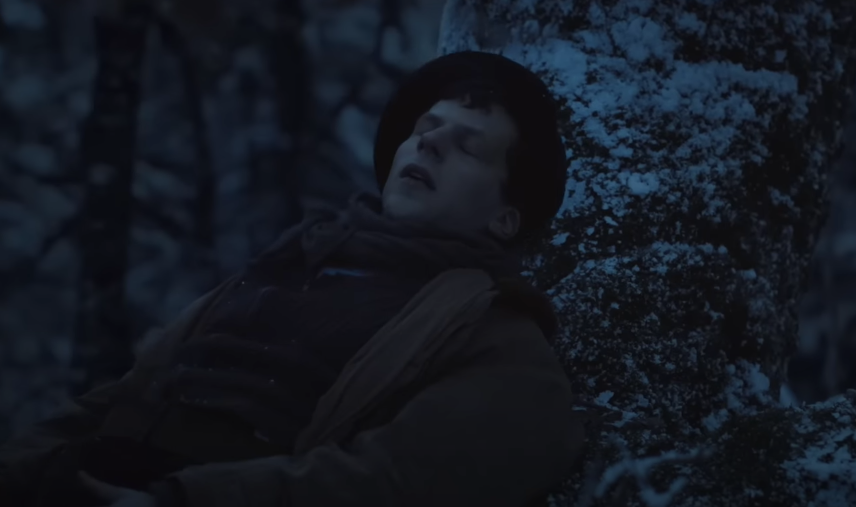 Pantaleon Films, Resistance (2020)
Pantaleon Films, Resistance (2020)
He Dodged A Dangerous Situation
On another occasion, Marceau had to react quickly when he came face to face with 30 German soldiers. To wiggle his way out of such a sticky situation, he came up with a brilliant plan.
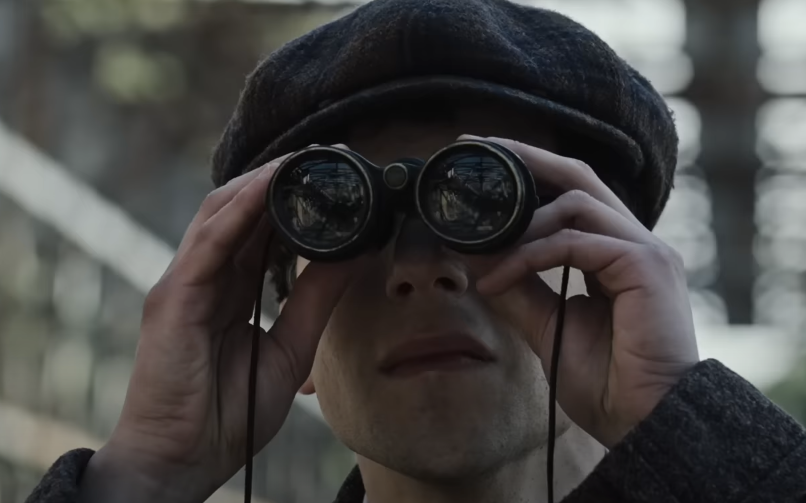 Pantaleon Films, Resistance (2020)
Pantaleon Films, Resistance (2020)
He Lied To German Soldiers
Marceau fooled the German soldiers by confidently presenting himself as part of the French Army, calling for their surrender. Thankfully, they followed his orders.
However, when it came to outwitting the enemy, Marceau wasn't the only one to have strokes of genius.
The Resistance Made Bold Moves
Marceau represented the OCE well, but he wasn't alone. Another member figured out how to hide the children's ID cards. He'd observed that German soldiers were too preoccupied with oil stains to thoroughly check sandwiches made with mayonnaise.
Therefore, they decided to conceal the ID cards inside the sandwiches.
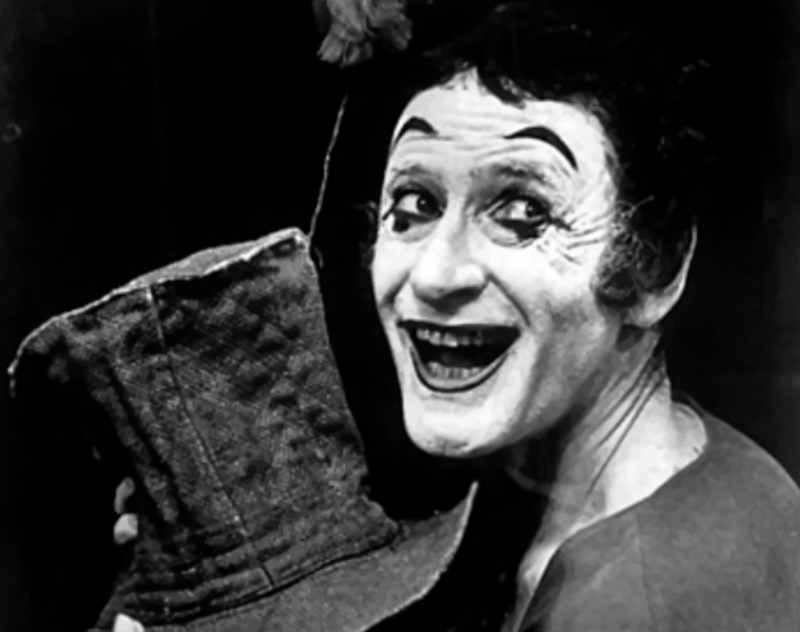 press photo, Wikimedia Commons
press photo, Wikimedia Commons
He Saved 70 Children
Marcel Marceau rescued at least 70 children from a devastating end—but that wasn't all he did.
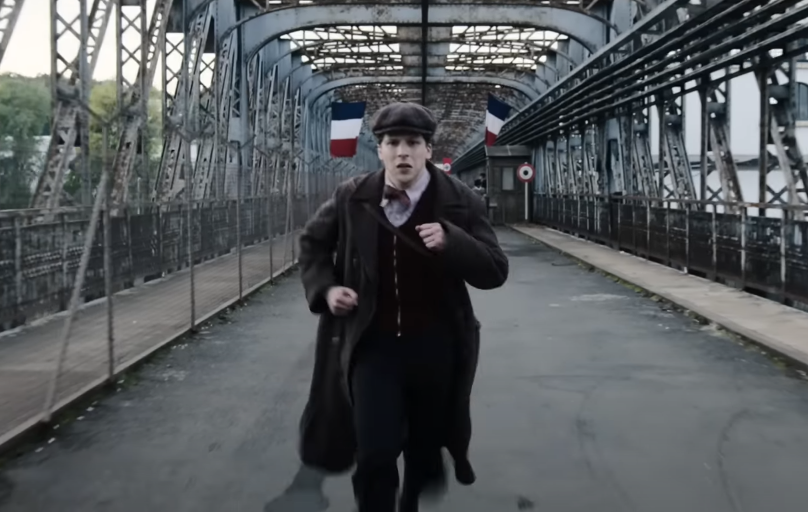 Pantaleon Films, Resistance (2020)
Pantaleon Films, Resistance (2020)
He Forged Documents For Them
In order to help Jewish folks escape deportation, Marceau began forging identity documents for them. These documents would allow people to appear much younger than they actually were.
However, despite his many heroic efforts, he didn't escape the war unscathed.
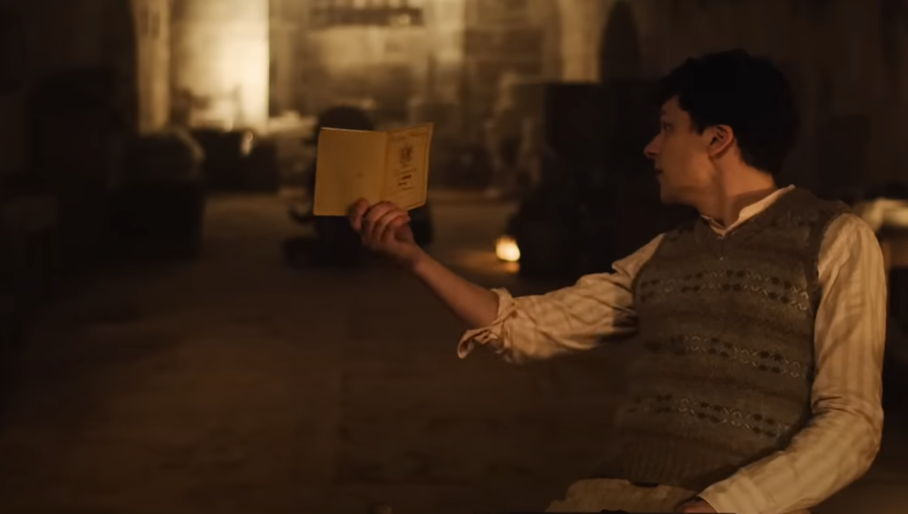 Pantaleon Films, Resistance (2020)
Pantaleon Films, Resistance (2020)
He Lost His Father
Tragically, the Gestapo captured Marceau's father and sent him to Auschwitz in 1941. He did not survive. Marceau's cousin Georges Loinger later observed, “You see the pain and the sadness in his mime skits. The origin of that pain was his father’s deportation.”
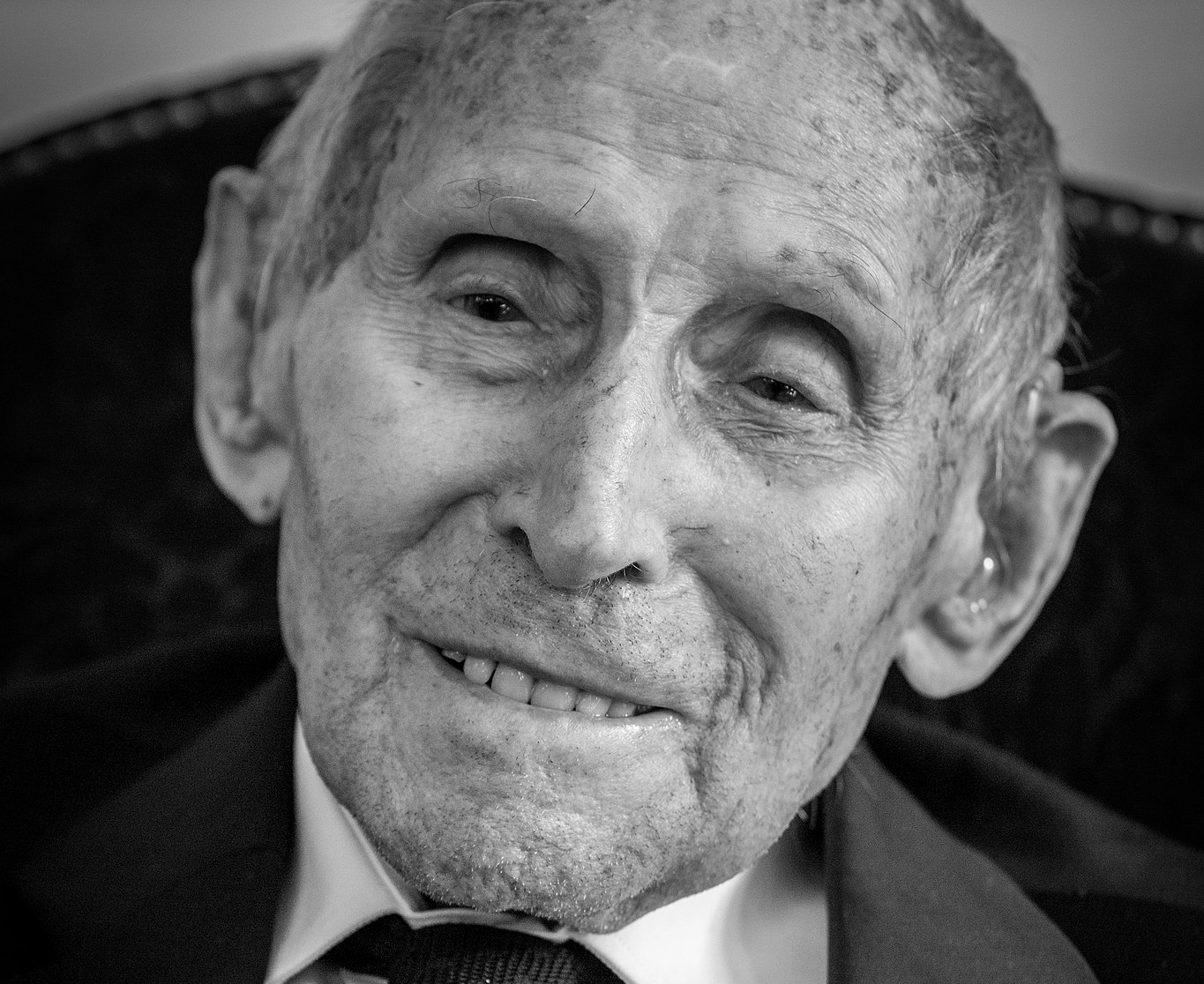 Claude Truong-Ngoc, CC BY-SA 3.0, Wikimedia Commons
Claude Truong-Ngoc, CC BY-SA 3.0, Wikimedia Commons
He Still Had Hope
However, Marceau's grief spurred him to do something positive with his life. In 2002, he shared, “I cried for my father, but I also cried for the millions of people who died…Destiny permitted me to live. This is why I have to bring hope to people who struggle in the world.”
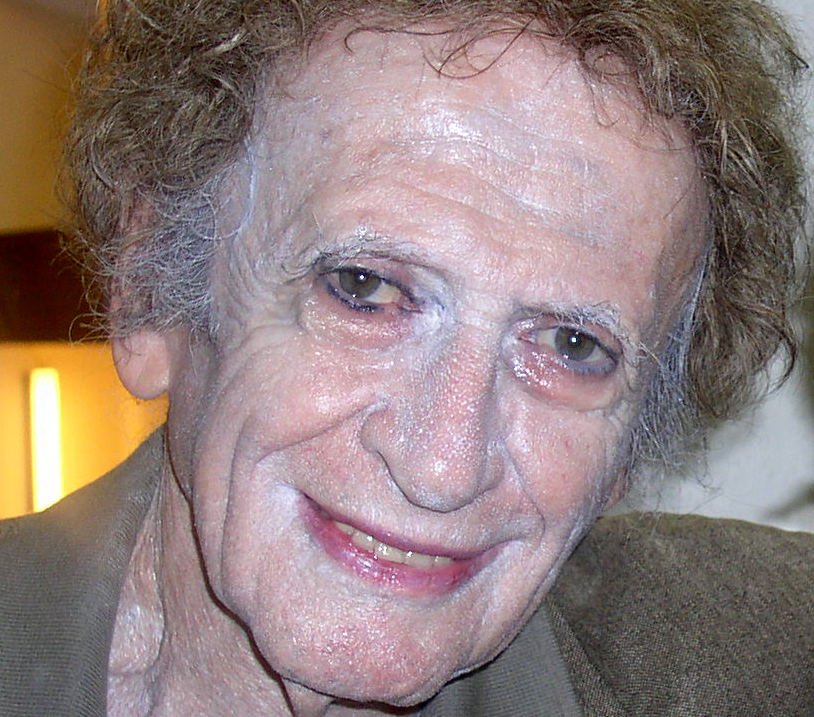 Brücke-Osteuropa, Wikimedia Commons
Brücke-Osteuropa, Wikimedia Commons
He Became Bip The Clown
When the war came to an end, Marcel Marceau turned the page on a new chapter—one that would catapult him to fame. In 1947, he created his alter ego, Bip the Clown.
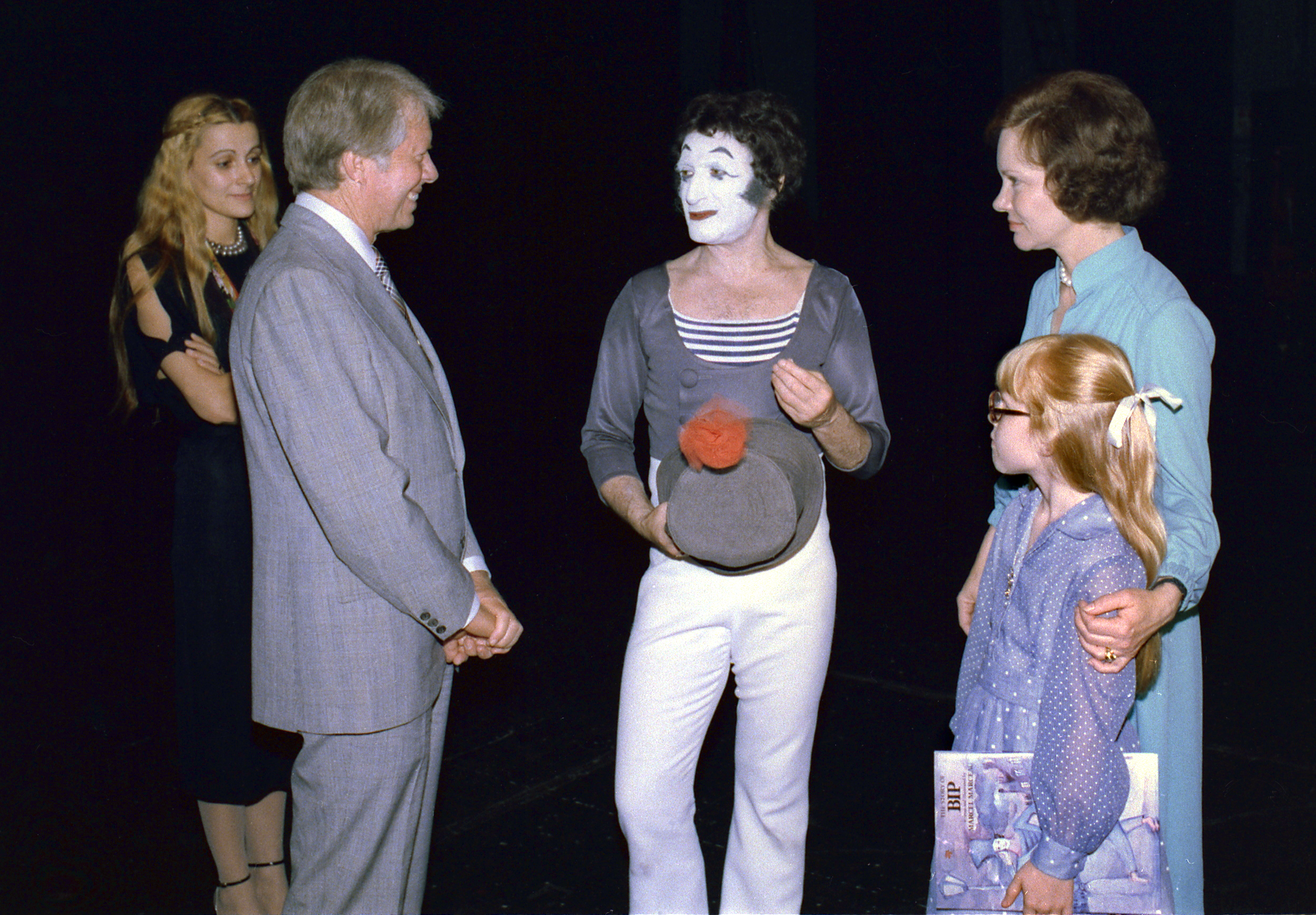 White House photo, Wikimedia Commons
White House photo, Wikimedia Commons
An Unforgettable Legacy
Bip the Clown had a classic look, but it was Marceau's unforgettable facial expressions and deep sorrow that struck a chord with his audiences. He performed all over the world for over six decades, sharing what he called the "art of silence."
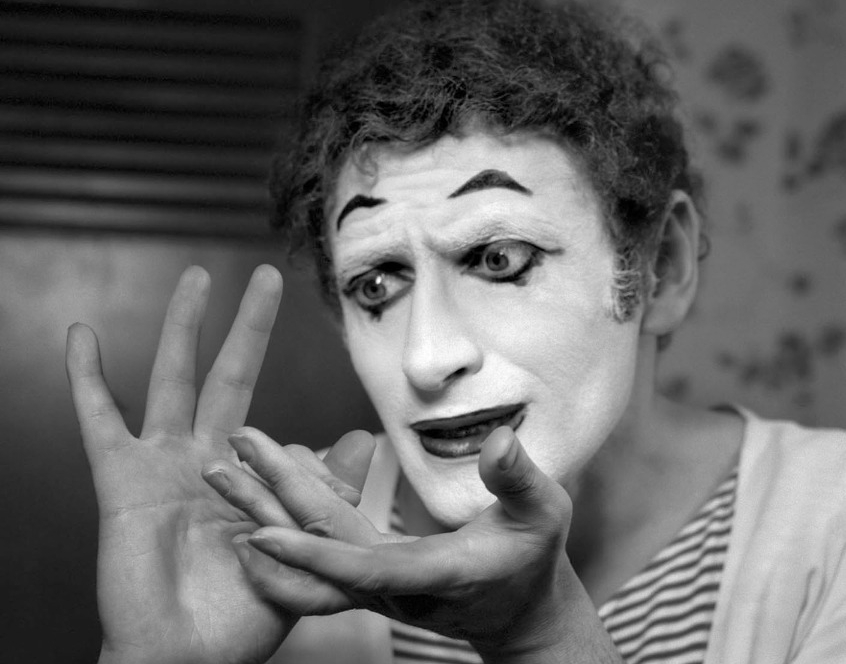 Annemarie Heinrich, Wikimedia Commons
Annemarie Heinrich, Wikimedia Commons

